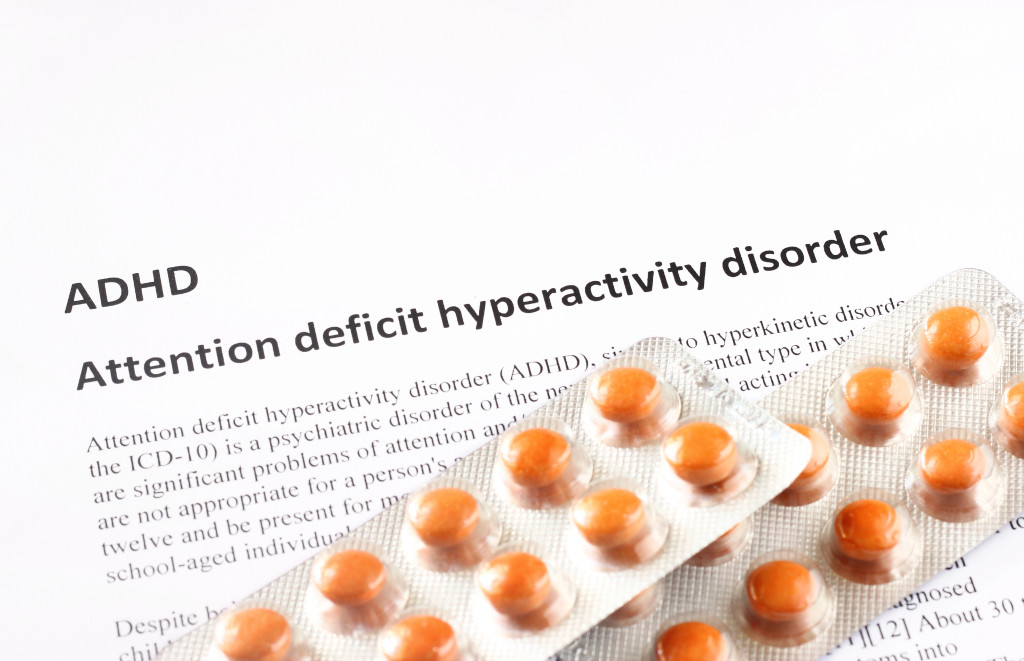SingaporeMotherhood | Parenting
June 2025
Understanding ADHD Medications: Make Informed Choices for Your Child

Attention-Deficit/Hyperactivity Disorder (ADHD) is one of the most common neurodevelopmental conditions diagnosed in children, often manifesting as persistent difficulties with attention, impulsivity, and hyperactivity. According to the Institute of Mental Health (IMH), about 5 per cent of school-aged children are diagnosed with ADHD. Dr Adrian Loh, senior consultant psychiatrist at Promises Healthcare, estimates that of these, only a small minority take ADHD medications.
In this Q&A, Dr Loh addresses common questions and concerns that parents may have about medicating children with ADHD — from balancing therapy with medication, to managing side effects, and understanding long-term outcomes. Through evidence-based insights and clinical experience, he aims to clarify misconceptions and guide families toward making informed decisions.
1. Why medicate children with ADHD? Isn’t therapy safer?
Both treatment options play an important role and are complementary. Medications can significantly reduce ADHD symptoms, leading to improved academic performance, better social interactions, and enhanced quality of life.
While behavioural therapy is beneficial, medication often provides more immediate symptom relief. The choice between medication and therapy depends on individual circumstances and should be made in consultation with healthcare professionals.
With very mild ADHD, therapy alone may be sufficient. But when the symptoms’ severity and functional impact is greater, there is ample evidence that the use of ADHD medications is highly beneficial. Furthermore, large studies in recent years show that sub-optimally treated ADHD can lead to undesirable outcomes. For example, increased risk of substance abuse and getting into accidents.
2. What about side effects and potential harms of ADHD medications in children?
Research indicates that long-term use of ADHD medications is generally safe and does not adversely affect brain development. The most frequent side effects include decreased appetite, sleep disturbances, and slight increase in heart rate.
Regular monitoring by healthcare providers can help mitigate these risks. If you observe such side effects in your child, report them to your doctor, who can then suggest suitable management methods. If this does not help, switching medications, dosages or timings can often be helpful.
3. Once my child starts taking ADHD medications, will they be able to function without it?

Starting ADHD medications should be done together with behavioural strategies. These include learning and incorporating coping strategies into everyday life. As a young person’s brain continues to develop until their mid-20s, there is a good chance that the need for medications reduces over time.
Also, as an adolescent matures, secondary and tertiary education usually offers more choice in terms of areas and modes of study. Hence, some children may eventually manage their symptoms without medication, especially if they have developed effective coping methods.
This decision should be made collaboratively with healthcare providers, considering the child’s progress and needs. Many believe that children will become dependent on ADHD medications. This is a myth. ADHD medications will not induce a dependence when administered correctly.
There is definitely no need to take it for life — the large majority will only require it on regular basis in their schooling years. A small proportion, however, may choose to continue medicating into adulthood, due to the clear benefits they obtain from it.
(See also: Understanding ADHD Kids: Dispelling Misconceptions with the Facts)
4. Do the benefits outweigh the risks?
When prescribed appropriately, the benefits of ADHD medications generally outweigh the risks. Thorough evaluations and ongoing assessments are crucial to ensure accurate diagnosis and appropriate treatment plans.
Indeed, misdiagnosis and over-medication are valid concerns. But in my experience, the more common problem is missed diagnosis. For example, this may come about due to misattributing symptoms of hyperactivity and impulsivity to ‘naughtiness’ and overlooking inattention as ‘dreaminess’.
In clinical practice, I have diagnosed many older teens, young adults, and even middle-aged folk who should have been treated for ADHD. With the benefit of hindsight, many discover how they struggled through their childhoods and schooling years needlessly.
5. What medicines are used to treat ADHD?
In Singapore, Methylphenidate (brand names include Ritalin, Medikinet, and Concerta) is approved for children aged 6 years and older. This common ADHD medication is also sometimes used in children below this age when symptoms are severe. As there is a lack of research data to support this use, however, such usage is termed as ‘off-label’.

Methylphenidate is a central nervous system (CNS) stimulant designed to treat ADHD and narcolepsy. It stimulates the brain’s activity, particularly in areas responsible for attention, impulse control, and hyperactivity. This works to optimise the level or activity of brain chemicals (neurotransmitters) such as dopamine and norepinephrine. As a result, it helps improve focus and attention, reduce impulsivity and hyperactivity, and enhance self-regulation.
The duration of medication use varies. Some children may benefit from long-term treatment, while others might manage symptoms with behavioural interventions alone. Regular evaluations by healthcare professionals are essential to determine the ongoing need for medication.
Other ADHD medications available in Singapore are Lisdexamfetamine (Vyvanse) — also a CNS stimulant, as well as Guanfacine (Intuniv) and Clonidine, which are non-stimulants as their mode of action involves indirect regulation.
(See also: Resources for Families of Children with Special Needs in Singapore)
6. If my child is prescribed medication for ADHD, how can I best help them manage?
There are three main areas worth focusing on:
First, to destigmatise the use of medications and explain the use of medication as akin to other medical conditions. I like to share with young people and their parents that if they had a broken bone, or were breathless due to asthma, it would be appropriate to have medical treatment to help improve one’s functioning and quality of life. We certainly don’t want people hobbling around in pain or panting all the time, do we?
Second, to accurately record down the benefits and side effects your child reports, as well as those that caregivers observe. Include when they occur in relation to medication dosing. These will not only help a child greatly in having confidence that it is okay to take medications. It also allows the treating doctor to adjust medications and dosages appropriately.
Third, to consider working with their respective schools and other key adults in their life to reinforce the importance of treatment! From time to time, I unfortunately come across well-meaning adults, ranging from school personnel to grandparents, who advise parents to stop giving their kids medications.
Final Words about ADHD Medications
Some people think that diagnosing a child with ADHD and giving them medications for it is because the parents are trying to find an easy solution. This is not fair to the child who is struggling due to a medical condition they did not choose to be born with. We should instead be acknowledging their challenges and adopting a holistic approach in helping them, including identifying their unique gifts and strengths!
(See also: Understanding ADHD Challenges: When Your Kid’s Struggles Are Also Their Superpowers)
 | Expert Resource Dr Adrian Loh is an experienced psychiatrist with a subspecialty focus in Child and Adolescent Psychiatry. He has a special interest in Obsessive-Compulsive Disorder, Anxiety Disorders and Neurodiversity. He previously practised at IMH’s Child Guidance Clinic (treating patients with ADHD, Autism Spectrum Disorder, and other developmental and mental health concerns), where he continues to serve as a Visiting Consultant. |
All images: Depositphotos
All content from this article, including images, cannot be reproduced without credits or written permission from SingaporeMotherhood.
Follow us on Facebook, Instagram, and Telegram for the latest article and promotion updates.




